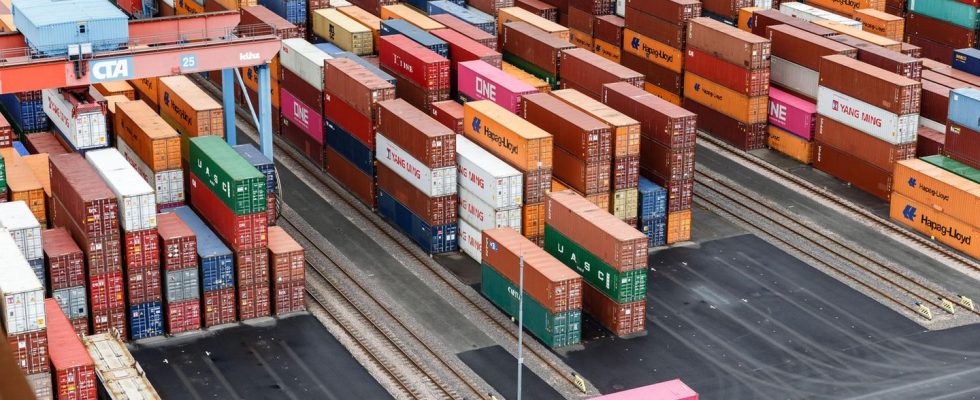Brussels
EU-wide supply chain law stopped for the time being – FDP blocked
Germany already has a supply chain law. For example, when companies import goods via the port of Hamburg, certain standards must be adhered to. However, the EU requirements are more far-reaching
© Markus Scholz / DPA
There was actually already a political agreement, but concerns from the FDP caused the project to falter again. A vote on the EU supply chain law planned for Friday has been postponed.
For the supply chain law, the traffic light parties had originally enshrined in the coalition agreement that they would advocate for a European regulation. The EU Supply Chain Act aims to hold large companies accountable if they profit from child or forced labor outside the EU. Larger companies should also be more obliged to comply with the Paris climate goals to limit global warming. Germany already has a supply chain law, but the EU project also goes beyond the German requirements. This means it applies to more companies and provides more opportunities to take legal action against companies that do not comply with the requirements.
However, in the final stages, Federal Justice Minister Marco Buschmann (FDP) found the law to be “unacceptable for small and medium-sized companies” in its current form. The Spanish negotiators of the member states exceeded their mandate during the negotiations in December by making concessions to Parliament.
Supply chain law causes discussions at traffic lights
A week ago, the FDP-led ministries of justice and finance opposed the plans and thus caused a dispute within the traffic light coalition. Foreign Minister Annalena Baerbock (Greens) clearly criticized the FDP, saying Germany’s reliability in the EU was at stake. She said: “If we break our word once given in Brussels, we lose trust.”
MEP Anna Cavazzini described the postponement as a tragedy. “The FDP not only forced Germany to abstain, but also put pressure on other countries not to agree to the EU supply chain law,” said the Green politician. The Chancellor must now speak out.
From Belgium to Cyprus
The state eats with us – that’s how high the taxes in the catering industry are in Europe
The President of the German Institute for Economic Research spoke out strongly in favor of an EU supply chain law on Thursday. Germany will suffer significant economic damage and Europe will suffer irreparable political damage if the supply chain law does not find a majority, said Marcel Fratzscher. With regard to Germany’s abstention, he said that this would be “not only a moral failure, but in the long term it could above all damage the open German economy and its most important brand core, the reputation of its products ‘Made in Germany’.”
German companies criticized the EU plans
However, business associations recently spoke out against the EU supply chain law. In a letter to Chancellor Olaf Scholz (SPD), they warned that companies could withdraw from Europe and that companies could be confronted with unfounded lawsuits and sanctioned with excessive penalties. The letter was signed by the presidents of the Federation of German Industries (BDI), the Confederation of German Employers’ Associations (BDA), the German Chamber of Commerce and Industry (DIHK) and the Central Association of German Crafts (ZDH).
The Association of the German Textile and Fashion Industry, for example, demanded that EU countries have to completely withdraw the planned supply chain law. The directive is a “bureaucratic monster that is completely unrealistic,” explained the association’s managing director, Uwe Mazura. The law will cost companies “unnecessary resources”.
Under the law, companies would in future be obliged to identify negative impacts of their activities on human rights and the environment. According to the text of the law, they must “prevent, mitigate, end and remedy” possible consequences. They would also have to monitor compliance with environmental and social standards at their partner companies in the value chain. These include suppliers, sales partners, transport companies, storage service providers and waste management.
It initially remained unclear when the member states should vote again on the supply chain law. The postponement makes it questionable whether the directive can be passed before the European elections at the beginning of June.

